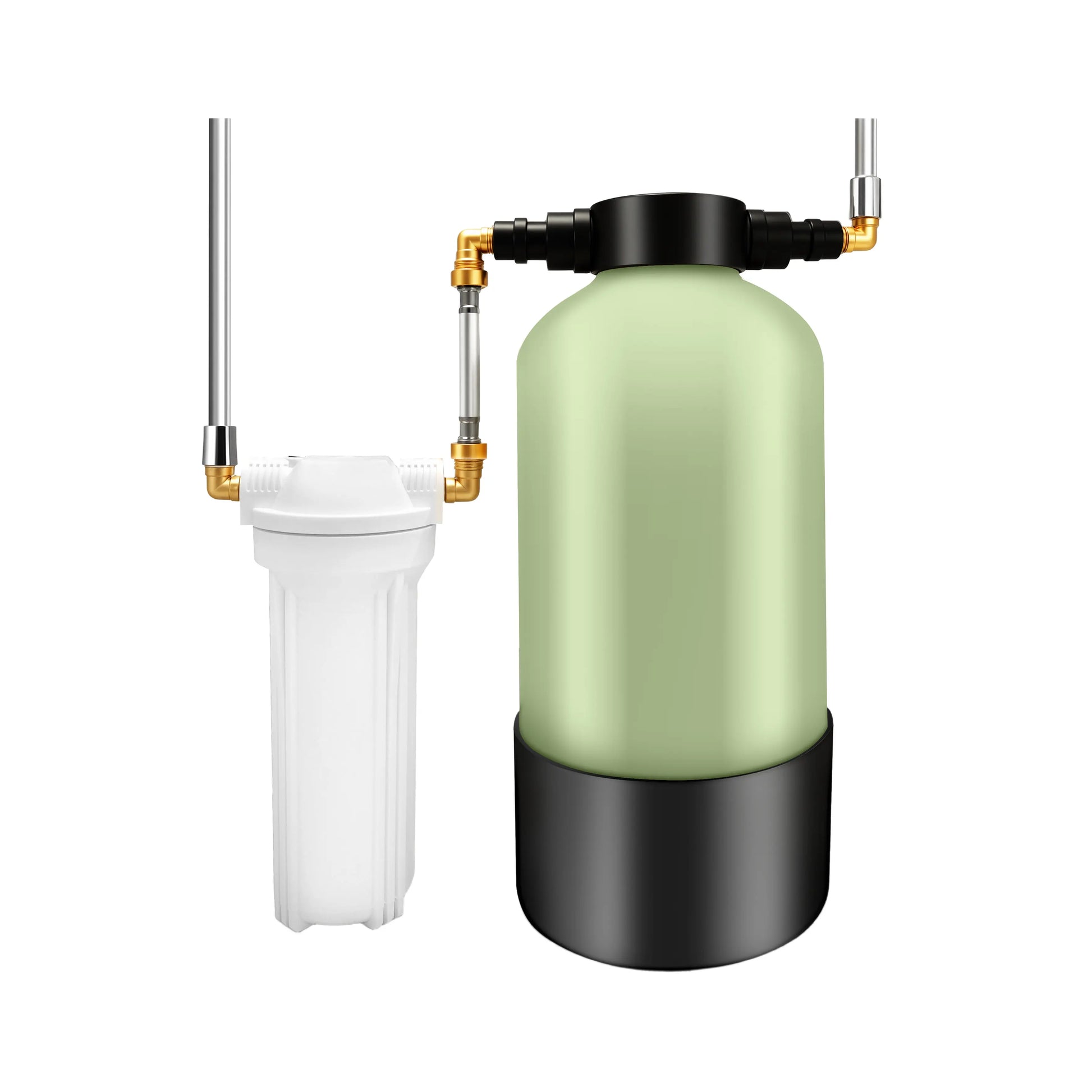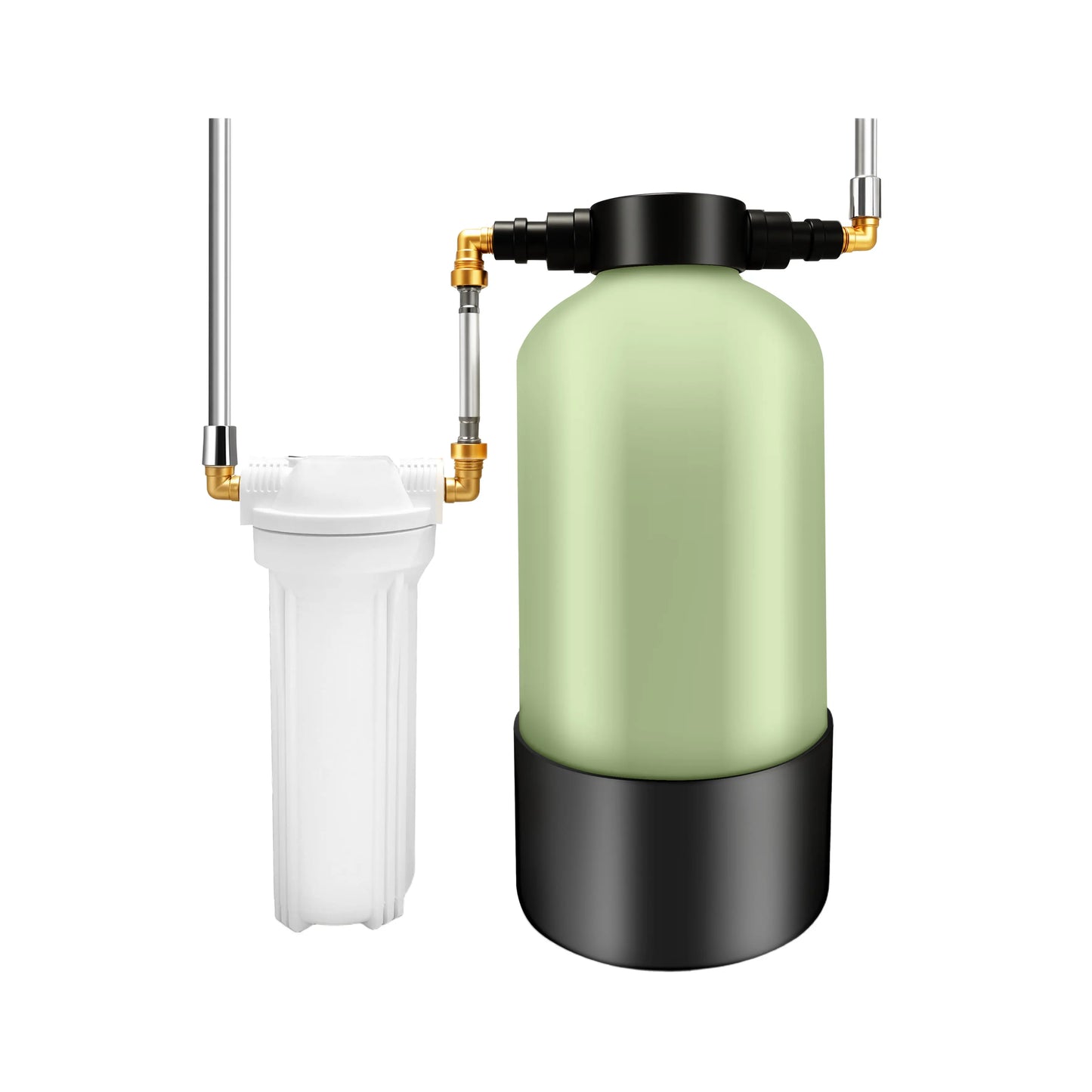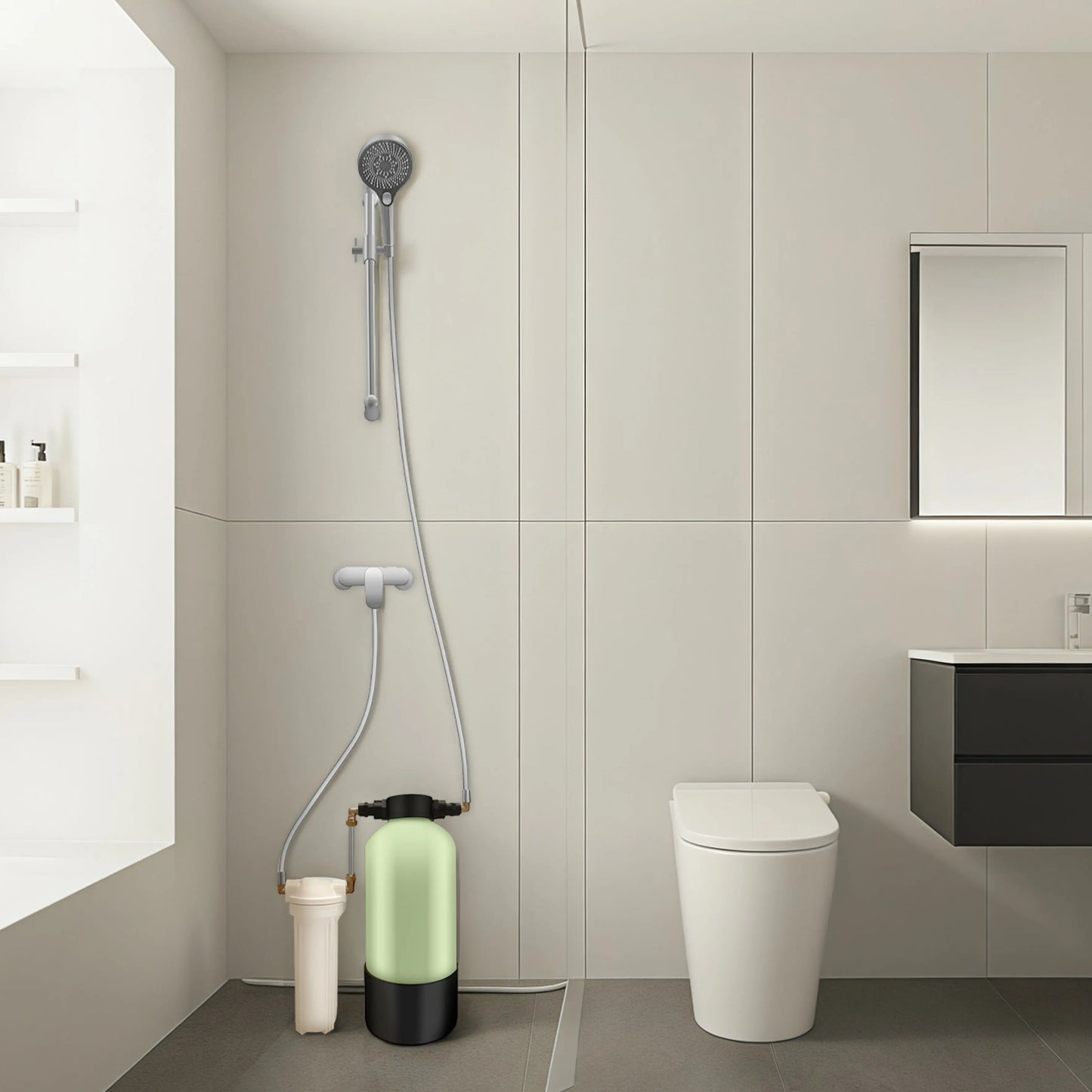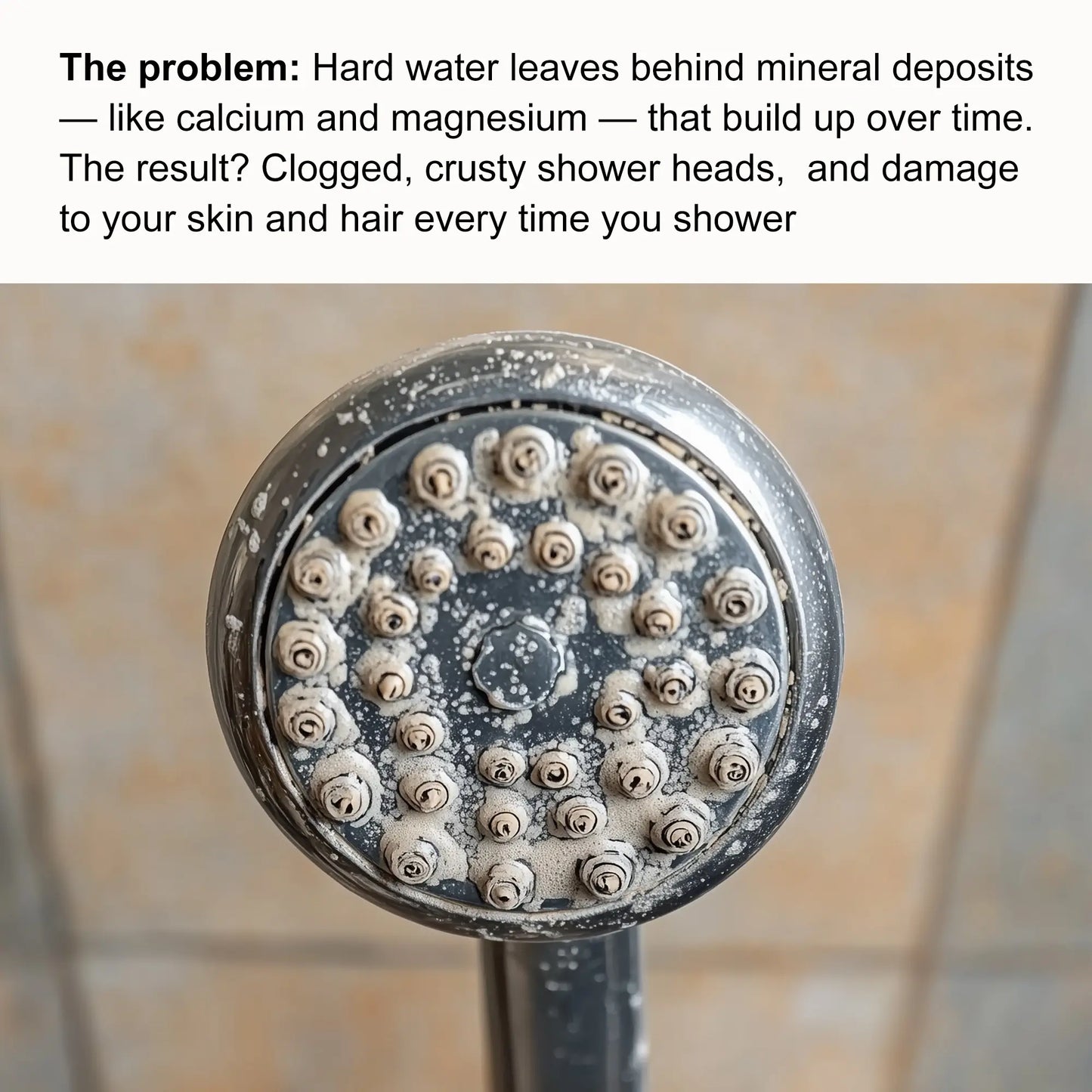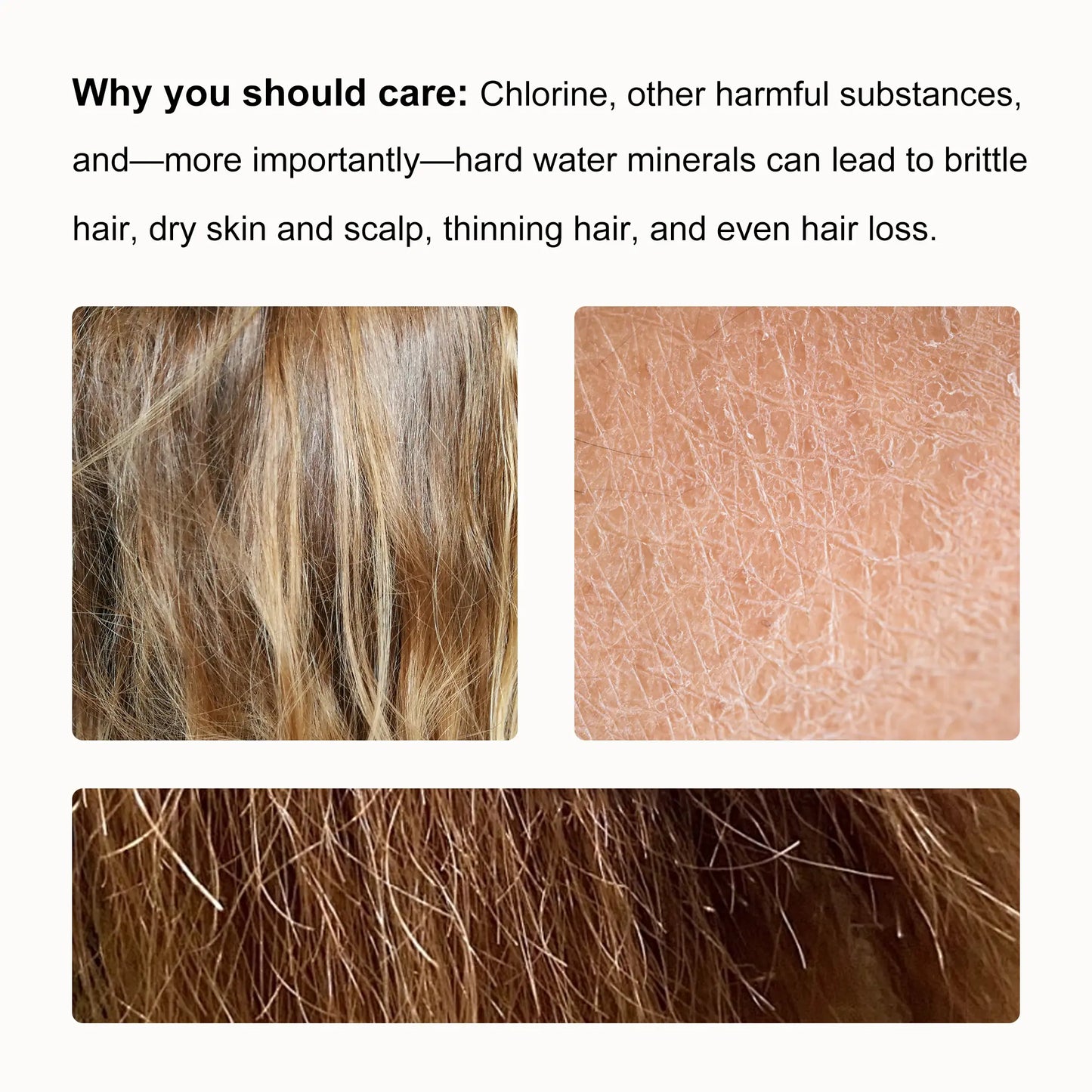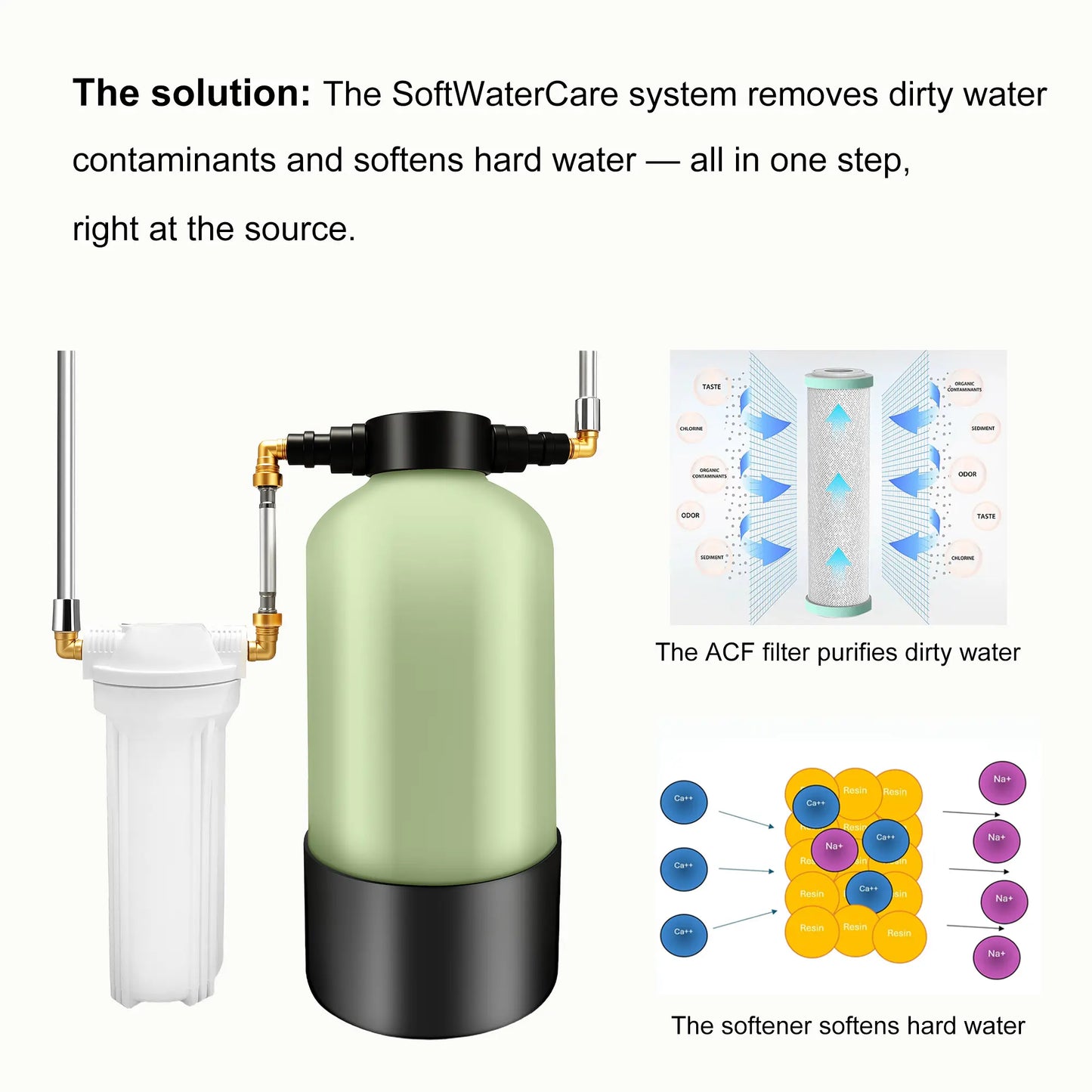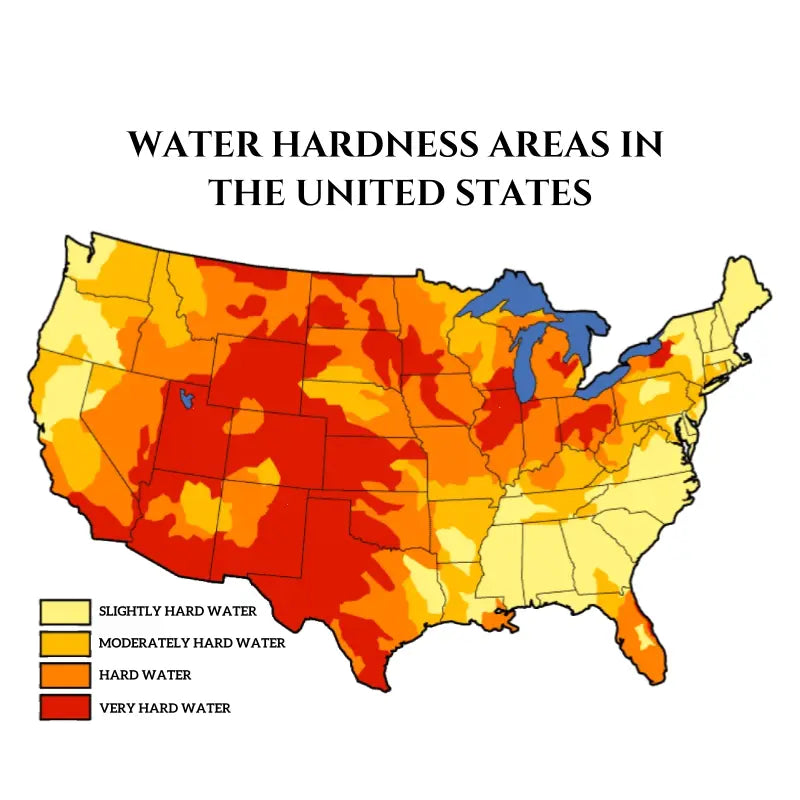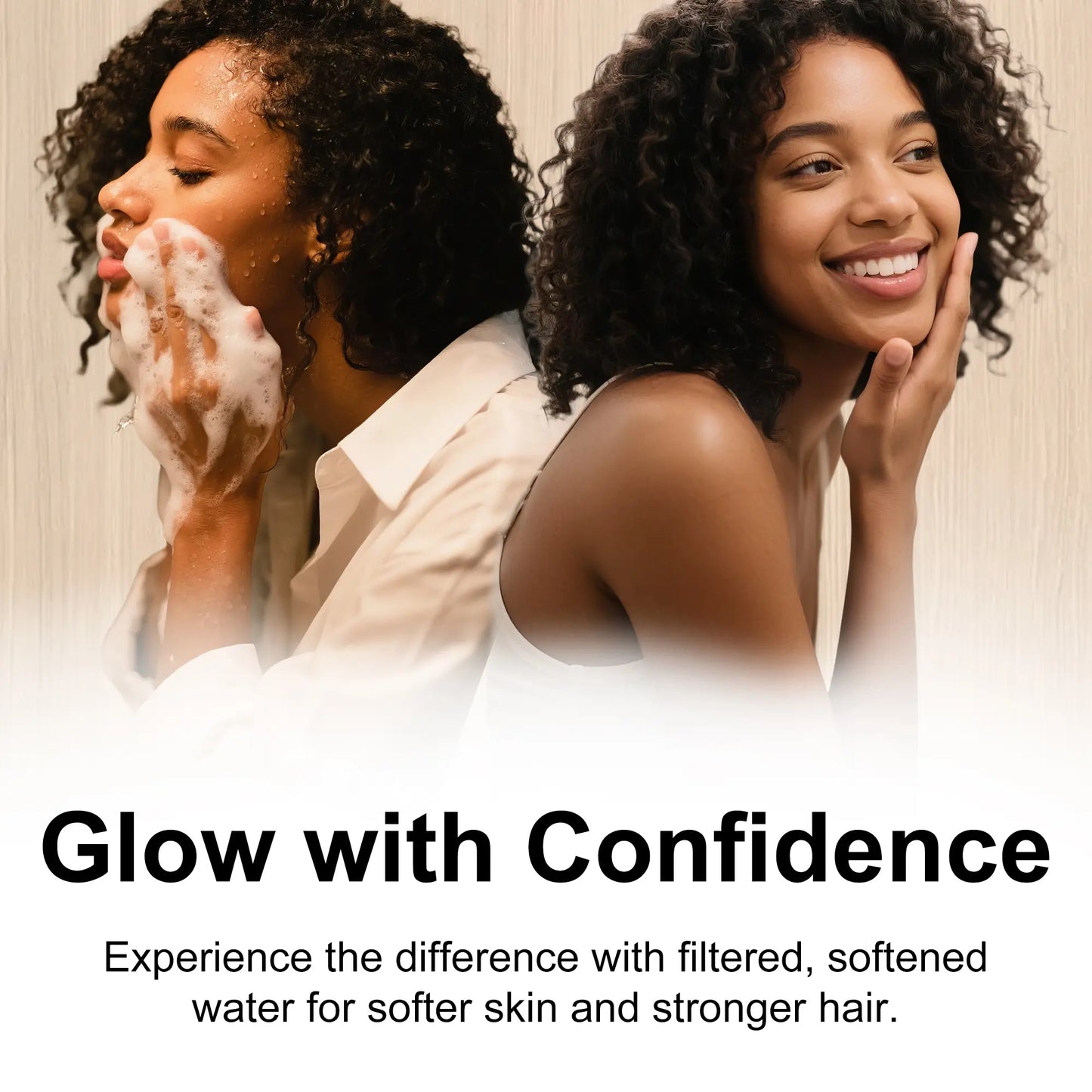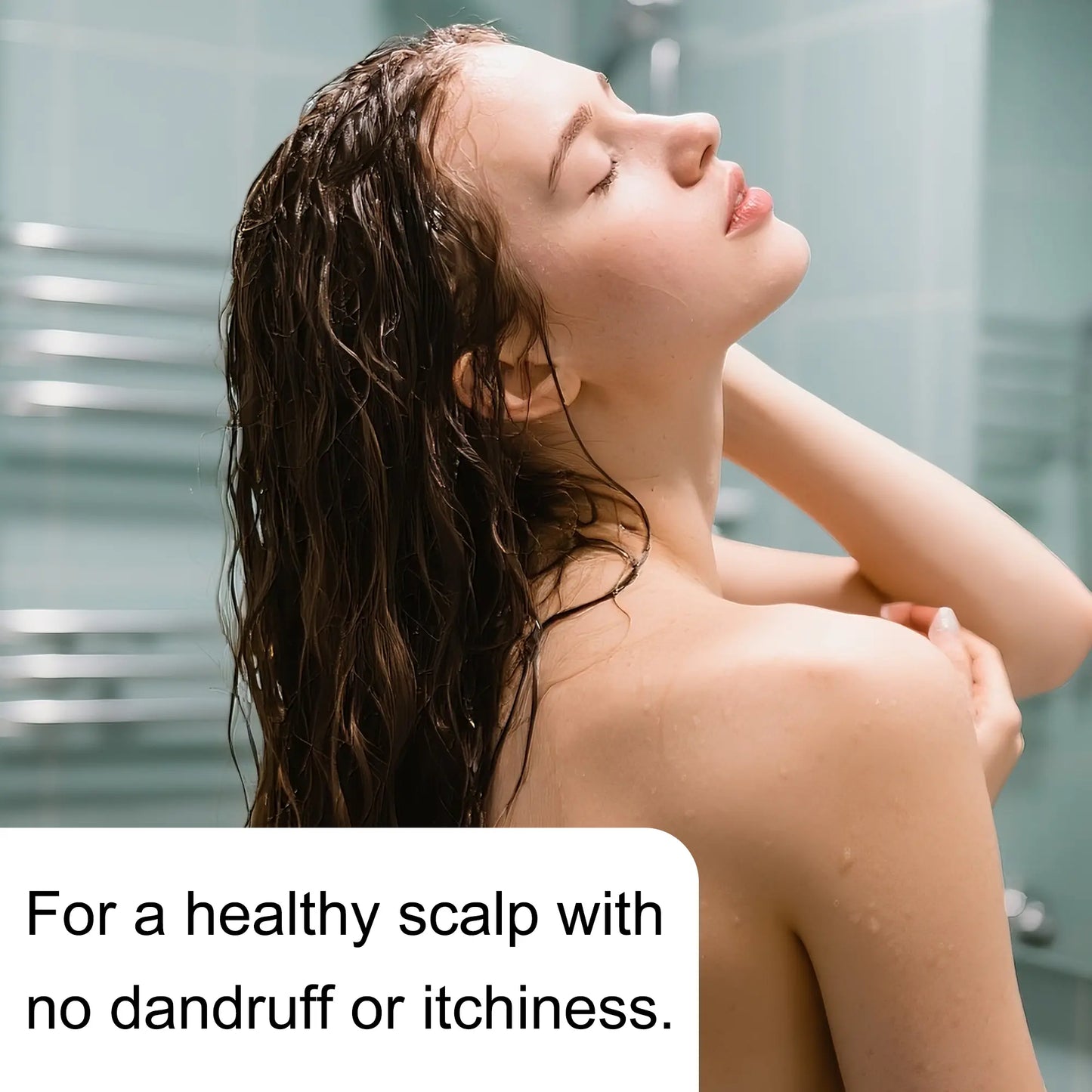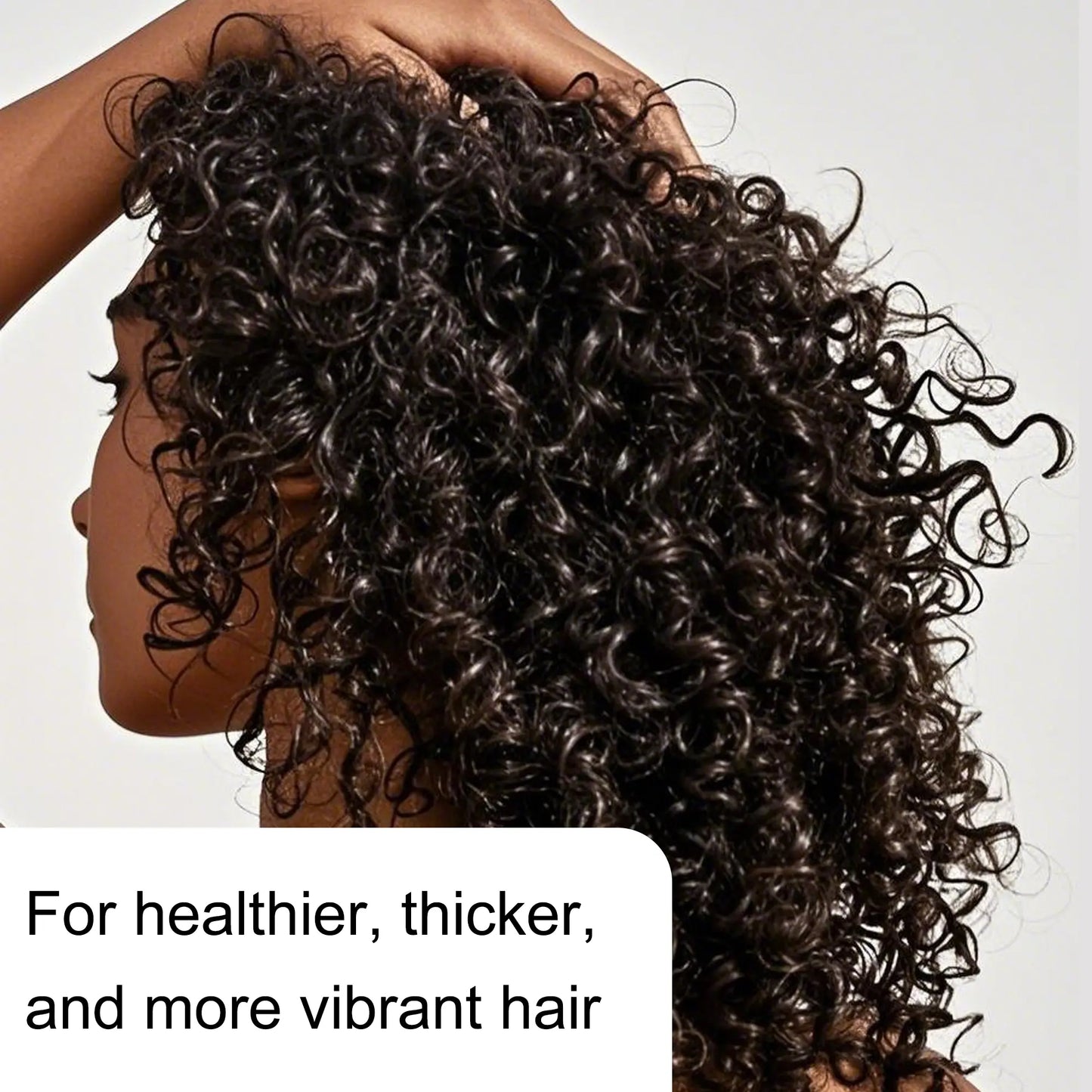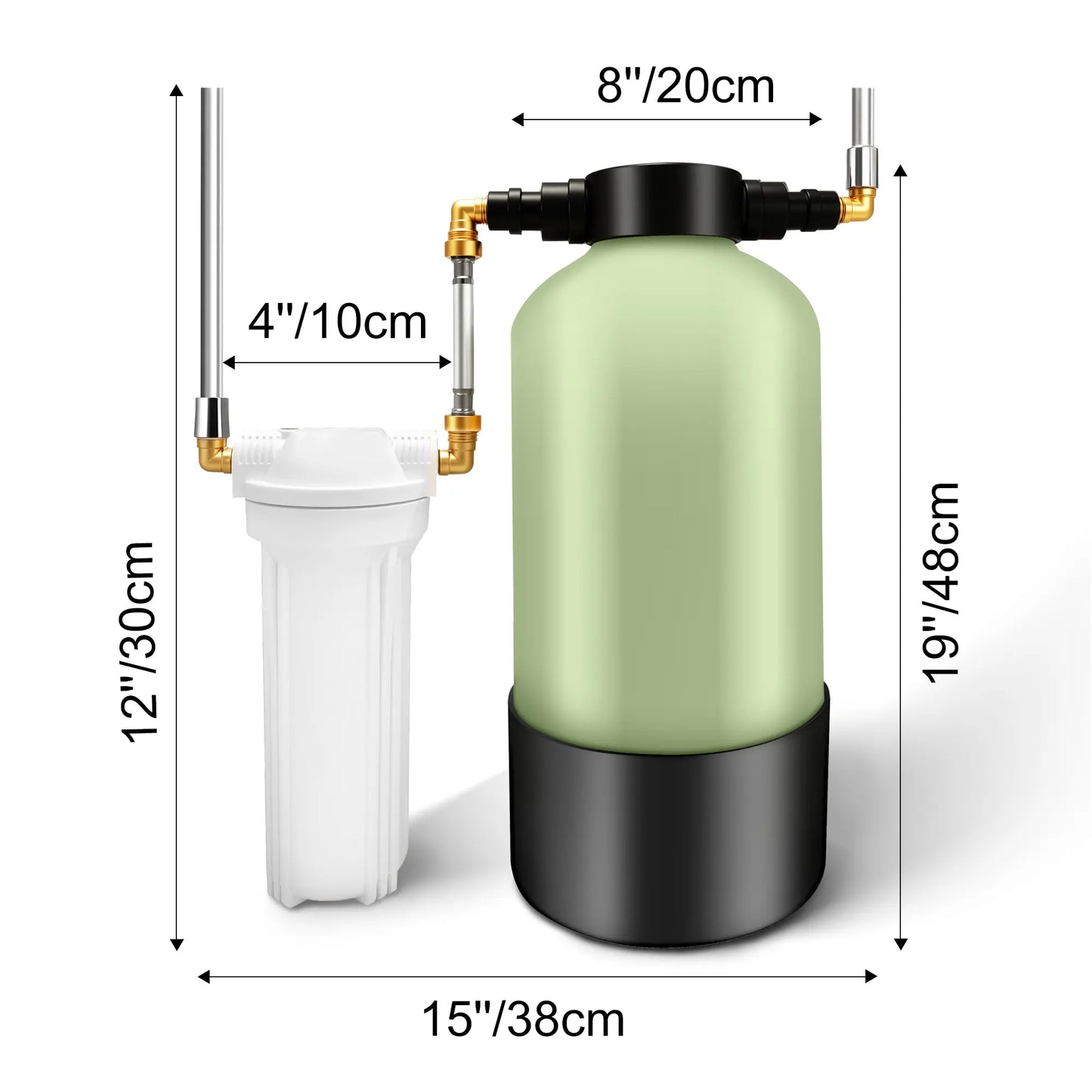If you’ve been watching more hair go down the drain than usual, you're not alone. Hair thinning and excessive shedding affect millions of people, and while stress, hormones, and diet are often blamed, there's one lesser-known factor that could be at the root of your problem: hard water.
Yes, the water you wash your hair with every day might be contributing to hair loss—and the connection is more serious than you think. If you've tried different shampoos, serums, and treatments with little improvement, it may be time to look beyond your products and ask a more foundational question: What kind of water is flowing through your showerhead?
What Is Hard Water?
Hard water contains high levels of dissolved minerals, mainly calcium and magnesium, which are picked up as water flows through soil and rock. While safe to drink, hard water can cause all sorts of household problems: soap scum, limescale buildup, and dull laundry.
But what it does to your hair is another story entirely.

How Hard Water Affects Your Hair and Scalp
When you wash your hair with hard water, the minerals don’t simply rinse away. They react with the ingredients in your shampoo, creating a residue that clings to your scalp and hair strands. Over time, this buildup can cause a range of issues:
1. Scalp Irritation
Minerals in hard water can disrupt the natural pH of your scalp, making it more prone to dryness, itchiness, and flaking. A stressed scalp is not a healthy foundation for hair growth.
2. Hair Breakage
Hard water causes hair to feel stiff, rough, and dry. The cuticle (outer layer of the hair) lifts and becomes more porous, leading to increased friction, tangling, and breakage.
3. Follicle Blockage
Mineral residue, especially when mixed with styling products and sebum, can clog hair follicles. This buildup restricts nutrient flow and oxygen, creating an environment that weakens hair at the root.
4. Hair Thinning Over Time
While hard water alone may not be the direct cause of male or female pattern baldness, it absolutely plays a role in accelerating hair thinning—especially when combined with other stressors like heat styling, tight hairstyles, or underlying health conditions.
5. Poor Hair Growth
Even if your hair isn’t falling out, hard water can prevent new hair from growing in strong and healthy. It limits how well your hair responds to conditioners and treatments, leaving it dull, fragile, and stunted.
Signs That Hard Water Might Be Affecting Your Hair
You might be dealing with hard water if:
Your shampoo doesn’t lather well unless you use a lot
Your hair feels dry, even after conditioning
You notice a waxy or coated feeling in your hair
You experience more tangles and breakage
Your scalp feels itchy, flaky, or overly greasy
You see white or chalky residue on your shower walls or faucet
Your hair color fades quickly if you dye your hair
If several of these sound familiar, the water in your home could be undermining your hair care efforts.
The Soft Water Solution
If hard water can cause buildup and block growth, then the obvious solution is to remove those minerals from the equation—which is exactly what soft water does.
Soft water is free of calcium and magnesium ions. It lathers easily with soap, rinses cleanly, and doesn’t leave residue behind. For your hair, this means:
Better product performance (you need less shampoo and conditioner)
Cleaner scalp with fewer blockages and less irritation
Stronger strands with reduced breakage
Improved moisture retention, shine, and softness
Healthier environment for hair growth
People who switch to soft water often report less hair shedding in the shower, fewer tangles, and an overall improvement in hair texture and volume.
Final Thoughts
If you're losing more hair than usual, don't rush to blame your genetics or stress. Sometimes the issue is literally flowing from your showerhead. Hard water doesn’t just damage your hair’s appearance—it can interfere with growth, health, and scalp balance over time. Switching to soft water may not be a miracle cure for all hair loss concerns, but it removes a major source of stress from your routine and gives your hair the clean, gentle foundation it needs to thrive.
References
Luqman, M., Ramzan, M., Javaid, U., Ali, R., Shoaib, M., & Luqman, M. (2018). To evaluate and compare changes in baseline strength of hairs after treating them with deionized water and hard water and its role in hair breakage. International Journal of Trichology, 10(3), 113. https://doi.org/10.4103/ijt.ijt_115_16

